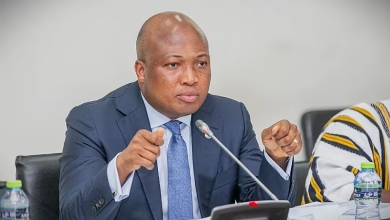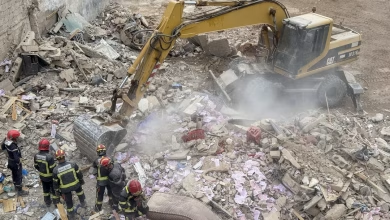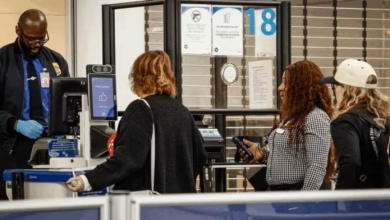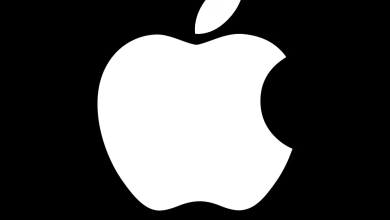Slovakia’s Prime Minister Robert Fico Visits Moscow for Talks with Putin
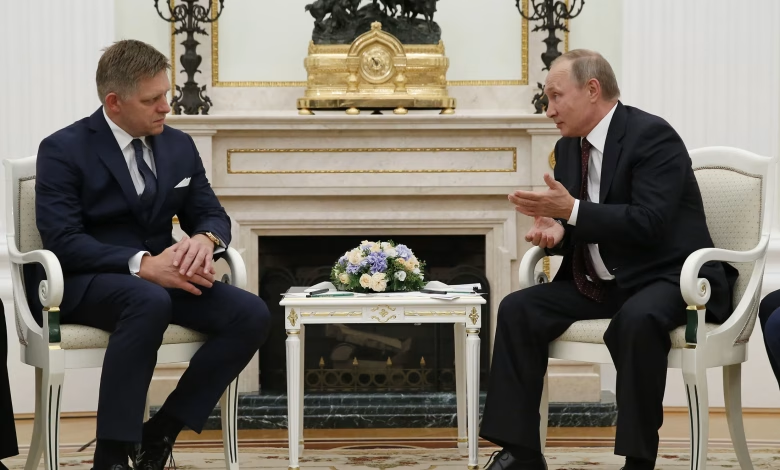
- Slovakia's PM visits Putin in Moscow
- Fico seeks Russian gas supplies amid EU tensions
- Visit sparks criticism from Czech Republic and EU
Slovak Prime Minister Robert Fico made a surprise visit to Moscow on Monday for talks with Russian President Vladimir Putin, marking him as only the third Western leader to meet Putin since the full-scale invasion of Ukraine three years ago. Fico, a prominent critic of the European Union’s support for Ukraine, said the discussions centered around Russia’s gas supplies to Slovakia, a country that heavily depends on Russian energy.
The deal with Russian gas giant Gazprom to transit gas through Ukraine to Slovakia is set to expire at the end of this year, and Ukraine has signaled it will not renew the agreement. Fico emphasized that Putin has been “wrongly demonized” by the West, reflecting his stance on the current geopolitical landscape.
The visit, which deviates from the EU’s Common Security and Defence Policy (CSDP), has raised eyebrows both within Slovakia and among its European allies. As part of the CSDP, EU member states have imposed multiple rounds of sanctions against Russia since Putin’s invasion of Ukraine in February 2022. Fico’s visit marks a break in this policy, following similar trips by Hungarian Prime Minister Viktor Orban and Austrian Chancellor Karl Nehammer, both of whom have been aligned with Putin.
On Facebook, Fico wrote, “Top EU officials were informed about my journey and its purpose… on Friday.” He added that Putin had confirmed his willingness to continue supplying gas to Slovakia, though the Slovak leader also acknowledged that this would be “practically impossible” if Ukraine refuses to extend the gas transit deal.
Fico, who survived a shooting earlier this year, also discussed the possibility of an “early, peaceful end of the war” and the future of bilateral relations between Russia and Slovakia. Kremlin spokesman Dmitry Peskov described the situation as “complicated,” emphasizing that Russian gas is “necessary for the normal operation” of several European countries’ economies.
The visit has sparked backlash within Slovakia and among its neighboring EU and NATO allies, particularly the Czech Republic. Czech Foreign Minister Jan Lipavsky criticized Fico’s actions, pointing out that his government had already secured energy independence from Russia. Lipavsky also expressed sympathy for Ukrainians who cannot spend Christmas with their families due to the ongoing war.
In Slovakia, opposition parties were equally critical. Michal Simecka of the Progressive Slovakia party described Fico’s trip as a “disgrace for Slovakia and a betrayal of national interests,” accusing him of turning the country into a tool for Russian propaganda.
However, Fico’s visit was defended by members of his own party. Erik Kalinak, an MEP for Fico’s Smer party, argued that the prime minister was simply seeking to secure cheaper gas imports for Slovakia. The visit was also supported by Environment Minister Tomas Taraba and the far-right Slovak National Party.
As Slovakia navigates its energy needs and its position within the EU, Fico’s meeting with Putin has sparked a debate on the country’s foreign policy and its relationship with Russia.



